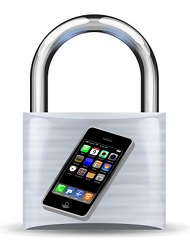Experts are saying that the popular photo sharing app is experiencing a lacking in privacy protection.
According to the complaints of a number of experts regarding the Snapchat app, the level of mobile security behind the application is greatly inadequate for protecting the privacy of its users.
Some now feel that the mobile app development team behind the app lacks the necessary understanding.
Among the most recent steps that the company has taken toward improving mobile security includes last week’s introduction of a CAPTCHA code verification. This is designed to help to ensure that all new subscribers are humans and not computer programs. It is important to avoid computer created accounts as these are common methods used by cybercriminals for the distribution of spam or to discover ways to grab personal information from other users of these types of mobile apps.
While the number of fake accounts may be reduced, it doesn’t mean that the mobile security is strong.
Although the CAPTCHA techniques can shrink the number of fake accounts that a service experiences, a graduate research assistant from the Georgia Institute of Technology, Steven Hickson, was able to easily hack into Snapchat despite its latest upgrades.
The CAPTCHA implementation at Snapchat was weak to the point that Hickson required under an hour on the mobile development of a computer program that would be able to trick the system with “100 percent accuracy”. Hickson explained that “They’re a very, very new company and I think they’re just lacking the personnel to do this kind of thing.”
In order to make sure that the potential user of the service is a human, the system selected by Snapchat involves having to choose the white ghost mascot of the company from among nine illustrations. Unfortunately, only the size and angle of the correct image is altered, making it simple for a computer to be able to recognize.
In order to stop a CAPTCHA mobile security system from being hacked, Hickson explained that “you want something that has a lot of variety in the answer,” adding that you essentially want one correct answer, but a vast array of different incorrect answers. This needs to be too complex for a computer to be able to solve while being quite obvious to a human.
Security could derail mobile payments in Ghana
Mobile payments have been gaining strong attention all over the world. As consumers become more heavily reliant on their smartphones and tablets, their interest in a cashless society grows. Such is the case in the African country of Ghana. More consumers in Ghana are gaining access to mobile technology and the government has been fostering a dream of a cashless economy that it has expected to see come to fruition in the near future. Mobile payments make a home in a perilous landscape, however, and the digital world contains threats that could derail Ghana’s dream economy.
Mobile security systems are still very lax
As mobile payments become more common in Ghana, so too does hacking and fraud. Internet fraud is quite active in Ghana; somewhat more so than in other African countries. Government officials have not yet found a way to curb this fraud or mitigate the damage that can be caused by hackers and these threats have stymied the growth of mobile commerce throughout the country. Major security issues may indeed prevent Ghana from attaining its dream of a cashless economy.
 Developing a cashless economy proves challenging
Developing a cashless economy proves challenging
In order to develop a new and comprehensive monetary system, Ghana will have to find a way to make mobile payments secure. This is no small task, as security remains a major problem even for countries like the U.S. and China when it comes to the issue of mobile payments. Even large companies like Google and Samsung have yet to find a way to make mobile payments completely secure. The threats that exist in the digital space have not yet become enough to deter consumers, however, many of whom are willing to participate in mobile commerce regardless of the risks they face.
Cash holds an important place with many businesses
Security issues are not the only challenge that Ghana faces in its hopes of establishing a cashless economy. There is currently a large volume of currency in circulation throughout the country, which makes the transition away from cash somewhat difficult. Moreover, physical currency plays a big role in many aspects of business in the country. Some small businesses will only accept payments that are made with cash and refuse to embrace mobile payments in any way whatsoever.


 Developing a cashless economy proves challenging
Developing a cashless economy proves challenging